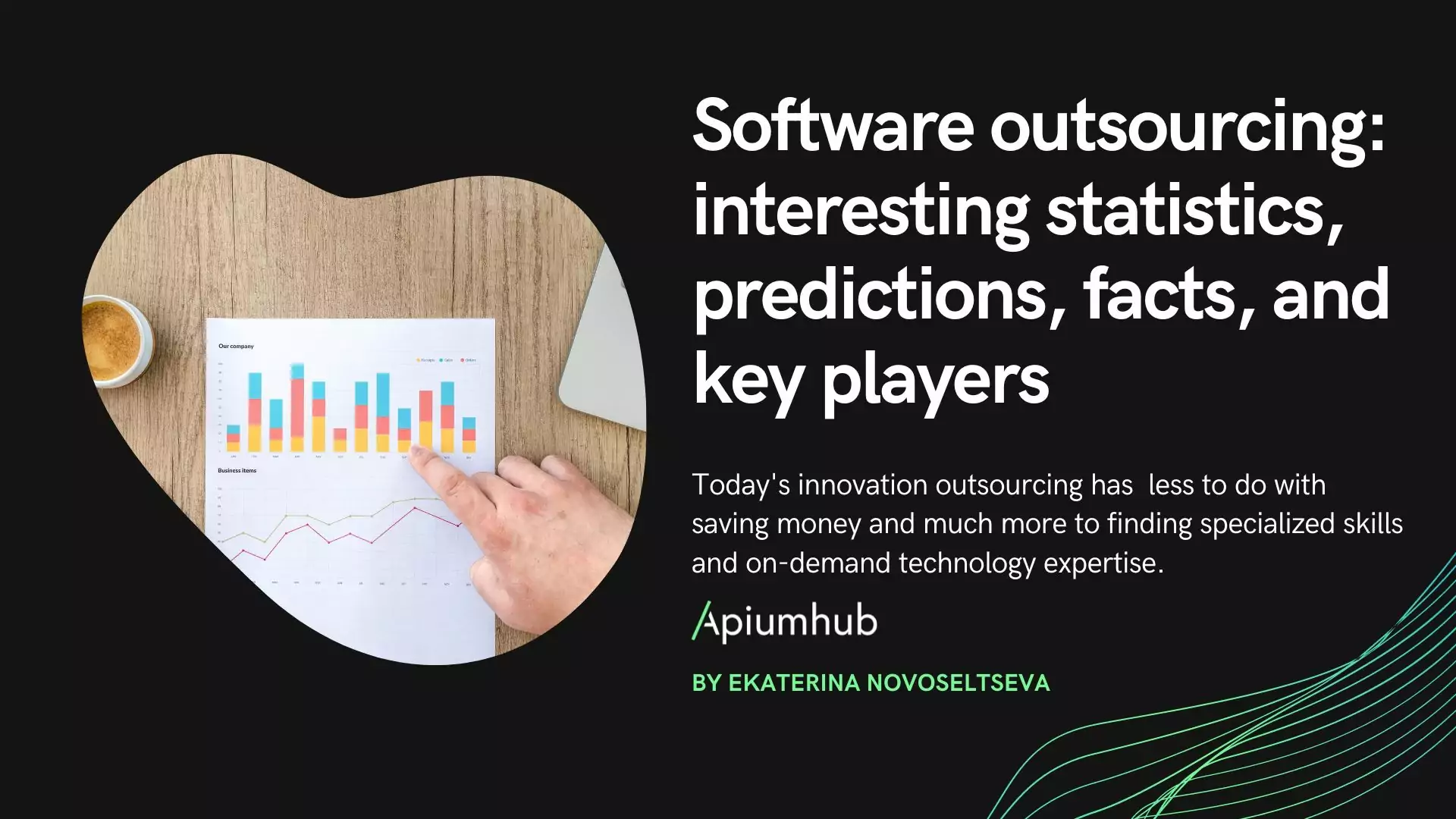Table of Contents
Digital identity technology has become an important and hot topic nowadays. Moreover, it became one of the most significant technology trends. 2018 will see further consumerization of security, with high demand from users seeking to open doors, and log-in to cloud-based resources, as well as have personalized on-demand printing of documents, and other daily activities using trusted IDs on their phone, wearables, smart cards, etc. Also, we expect to have a solid identity solution to substitute password log-in option completely. In 2018, security is expected to continue to be a point of concern, therefore there will be an increased focus on privacy and digital identity.
For example, IoT is on the rise, and for modern connected devices like home lighting arrays, garage door openers, and smart wearables, using username and passwords to control access and authorization just won’t work. Now we have much more advanced technology that is more secured and easy to use. Innovative new IoT initiatives in 2017 require passwordless identity management and continuous security techniques to maintain secure access to devices and services. In this article we will look at digital identity trends, innovations & startups.
In the digital age in which every organization is a digital company, digital identity helps:
- to understand current customers, future customers, and how they are related to each other and to other organizations.
- to understand the state and the value of the physical assets.
- to establish trust among individuals, organizations, etc. so that exchange of information and
- exchange value through transactions can take place effectively and efficiently.
compliance and risk management solutions.
Currently, organizations are looking for more advanced ways to identify, verify, authenticate individual users through additional identity attributes such as biometrics and through better algorithms to detect anomalies using techniques such as deep learning.
Digital identity trends in 2018
As discussed, there are huge changes in the way digital identity technology is used and adopted, especially for mobile devices and smart city technology, with a greater reliance on the cloud and increased trust in the Internet of Things.
There are five growing trends in 2018 that will influence how organizations create, manage and use trusted identities in a broad range of existing and new use cases.
- Artificial intelligence-based software
- Digital identity predictive analysis
- Biometric verification systems
- ID verification
- Authentication & authorization solutions
Digital identity technology statistics & facts
Let’s look at some statistics and facts to better understand the situation.
- According to Juniper research, 600 million devices will use biometric authentication by 2021. Biometrics is coming to be understood as one of the most advanced and secure systems, not only for identity verification but also for improving functionality through capabilities such as facial recognition-based login, making processes faster and easier for the user.
- The UN and World Bank ID4D initiatives set a goal of providing everyone on the planet with a legal ID by 2030.
- The European Union’s Electronic Identification and Signature (eIDAS) regulation came into force in July 2016, requiring mandatory cross border recognition of eID by September 2018.
- Smart borders/smart airports emerged at a faster pace. Combined with the 700 million plus ePassports now in circulation, and a strong push behind biometrics,particularly face recognition, they offered travelers a taste of cross-border movement that is as secure as it is swift and seamless.
- Digital driver’s license projects gathered momentum in countries including the USA, UK, Australia and the Netherlands.
- Smart city growth. Governments are working on advanced solutions to improve public services. eGoverment and mGovernmen will force digital innovation and digital identity implementation. In 2017, the message for public authorities was clear: national digital ID is a must.
- 2018 will also see further consumerization of security, with heightened demand from users seeking to open doors, and log in to cloud-based resources, as well as have personalized on-demand printing of documents, and to deploy printed credentials remotely or conduct other transactions and daily activities using trusted IDs on their phone, wearable or smart card.
- In the increasingly connected healthcare environment, institutions are seeking to implement better systems to improve the patient experience and enhance efficiencies, while safeguarding and managing access to equipment, facilities, patient data and electronic prescriptions, etc.
15 Digital identity technology startups to watch
1. Civic
Itis a blockchain-based identity management platform that allows users to register and validate their personal identity information and lock their identity in order to prevent identity theft and fraudulent activity on their credit reports.
2. HYPR
HYPR enhances the user experience by allowing you to choose from voice, face, touch and eye recognition. Their decentralized authentication platform allows enterprises to leverage biometrics without worrying about hackers attacking a biometric server or centralized password database.
3. UniquID
Provides secure identity management, integrated with fingerprint and other biometry on personal devices. It is ready to be deployed on custom hardware, servers, personal computers or smartphones and tablets.
4. Icar Vision
ICAR Vision (we’ve actually worked for them in the past) is a leading identity companies specialized in the people IDentification, such as automatic read of ID Documents, face recognition and identity fraud fighting. Icar Vision has several great solutions, that make the identification process comfort and fast. Basically, customers can register and validate their identity from any smartphone or tablet, quickly and easily. In Q4 2017, Mitek, a global leader in mobile capture and digital identity verification software solutions, acquired ICAR, a leading provider of consumer identity verification solutions in Spain and Latin America, for an aggregate purchase price of up to €12.75 million!
5. JumioEDIT
It enables businesses to reduce fraud and increase customer conversions while providing a seamless customer experience. Customers have a complete identity verification solution that can be tailored to fit their specific business requirements. Their solutions combine biometric facial recognition, facial image matching, ID verification, and document verification to ensure the physical identity matches the real-world identity.
6. Socure
Its technology applies machine-learning techniques with biometrics and trusted online and offline data intelligence from email, phone, IP, social media and the broader Internet to power next-generation multi-factor authentication in real-time.
7. BeehiveID
It is a new way to identify fake online accounts created by bots or people intending to use stolen credit cards or commit some other kind of fraud. Their technology is opt-in and provides strong identification while preserving privacy.
8. Logrr
Logrr is an Identity as a Service platform for enterprises and government organizations that connects employees to their cloud business applications without using passwords. It is a new secured way of authentication that does not require the use of passwords at all. It allows logging in on a website by using your phone.
9. Authentiq ID
Strong authentication, without the passwords. Authentiq offers a better way to establish a decentralized identity online and in your phone and use that to identify yourself on sites on the web, apps on your devices, and places in the real world. It is a great way for companies to move beyond passwords.
10. Sedicii
Sedicii allows two parties that have access to the same information to prove to each other that they both have exactly the same information.The technology can be applied to pieces of private information such as passwords, bank account details, credit card details or other identity attributes so they can be proven without the need to disclose or share the underlying information.
GDC is a Data as a Service company with a cloud-based platform for global electronic identity verification. For businesses that need to know the identities of customers all over the world, GDC provides one point of access to local, in-country reference data for instant verification.
12. Uport
uPort is the leading blockchain identity platform. They are building a self-sovereign identity platform that provides users with a central place to establish a complete digital identity and authenticate themselves wherever uPort is accepted. They are built on the Ethereum blockchain and are currently being incubated at ConsenSys.
13. Evernym
Evernym is the creator of Sovrin, a platform for every person, organization, and connected thing to have an independent identity—an identity separate from any “silo”—that enables trusted peer-to-peer interaction on a global scale.
14. BanQu
BanQu is a universal platform, based on blockchain, that is starting to open the global economy to the 2.5 billion unbanked people by providing them an economic identity.This identity can include things such as credit history, property rights, assets, aid-data etc.
I hope you found this article interesting and useful! If you are interested in latest tech trends, I recommend you to subscribe to our monthly newsletter here.
And if you are interested in discussing the possibilities for your company, please contact us, we will be happy to discuss your project!
If you liked this article, you might like…
- The concept of datafication: definition & examples
- Virtual reality technology: main trends, statistics & startups
- Barcelona; one of the best smart cities in Europe
- Elastic search: advantages, case studies & books
- Human-centered innovation: careers, benefits & examples
- Natural language processing projects & startups to watch
- Barcelona makes it to the top 5 of innovation hubs
- Top smart city projects & leaders to watch
- Disruptive technology & innovations to track
Author
-
Ekaterina Novoseltseva is an experienced CMO and Board Director. Professor in prestigious Business Schools in Barcelona. Teaching about digital business design. Right now Ekaterina is a CMO at Apiumhub - software development hub based in Barcelona and organiser of Global Software Architecture Summit. Ekaterina is proud of having done software projects for companies like Tous, Inditex, Mango, Etnia, Adidas and many others. Ekaterina was taking active part in the Apiumhub office opening in Paseo de Gracia and in helping companies like Bitpanda open their tech hubs in Barcelona.
View all posts









